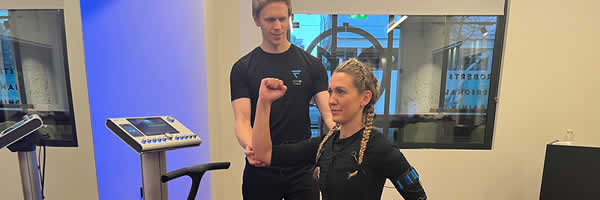Personal Training
The Matt Roberts Personal Training team have long been recognised as industry leaders. With more than a million hours delivered across the UK. Now, our expert training team can coach you wherever you are in the world!
This appears to be as guaranteed and unavoidable as day following night. So you could just accept it as an inevitable fact of life. But why allow this when you have spent all year working hard and eating healthy, and will likely spend a lot more time trying to lose this weight again, just to get back to the point you were at the end of November, instead of making new progress towards a physique you have never reached before?
Below are some relatively simple tips which should hopefully help to avoid this completely unnecessary problem.
The first point to note is in the quote itself: “The four-week Christmas period.” Christmas is ONE Day! Turning it into a month-long period is just creating excuses to deviate from the usual good habits of healthy eating and regular exercise. How successful would you have been in any of your life’s endeavours had you kept taking long breaks instead of persevering? Your health and fitness is no different. So instead of viewing Christmas as a month of indulgence, see it for the one day of festivities it really is, loosen the belt a little for that day, and then get back to your normal routine the following day. Do not fall for the common trap of leaving this until after New Year, return to normality on the 26th December. You will be glad you did in the long run.
This is one of the best ways to avoid eating excessive amounts of junk food. Plan for all the meals for the days between Christmas and new Years, the same as you would in any normal week of the year and you will be far less likely to eat whatever is lying around, which is usually chocolates, biscuits and mince pies.
Every year, most families will receive at least one, if not, maybe many large tins of chocolates, toffees and biscuits. These will generally be left open for people to graze on, until they are all gone except for the coffee flavoured ones that nobody likes. As this is spread out over several days instead of happening all at once, you will probably consume a lot more than you realise. To avoid overeating like this, keep the tin closed and out of sight, only bringing them out once a day, filling a small bowl, and returning them to the cupboard. This will limit the number you eat as you will be more aware if you are greedy and have more than you know you really should.
You will undoubtedly have a number of parties leading up to Christmas, where “nibbles” are provided, usually high in fat, salt and sugar. These parties will also involve alcohol, which stimulates appetite. As does boredom, and especially if this is a work function, at some point you are sure to be collared for a conversation with somebody you find unbearably dull. This combination can result in excessive consumption of less than desirable food. A simple solution to this is to ensure you have eaten a healthy solid meal shortly before attending the party, as you will be a lot less tempted by the snacks on offer if you are satiated rather than arriving on an empty stomach.
As mentioned briefly above, Christmas is renowned as a time for a drastic increase in alcohol consumption. It is not suggested that you completely abstain from eating and drinking the things you enjoy, but as with most things in life, moderation is the key. So a good idea is to create a set of sensible guidelines and strive to stick to them. For example, for every night when you drink some alcohol, reserve at least one day with none; if it is a night of heavy drinking, at least two days would be recommended before drinking again. Something worth mentioning on this subject is that it is very common in these situations, for some people, believing they are being friendly, to be a little pushy and not accepting that you would rather not drink. If this occurs, a simple and effective excuse I have found to work well is to tell them you are the designated driver for the evening, which will be a good enough reason for most people to respect your wishes.
The previous tips have focused primarily on diet, but continuing to exercise during this period is also important. Due to various reasons, such as gyms being closed for a few days or shorter opening hours, being away from home visiting family and other commitments, it can often be very difficult to maintain your normal exercise routine. But this doesn’t mean you should stop doing anything at all. Stay active and find alternatives, which also gives you a mental break from “the norm,” as well as being good for you physically. Instead of watching the usual repeats of old Christmas films, try going for a walk in the fresh air to help Christmas dinner settle, have a bit of horseplay with the nieces and nephews, test-ride your child’s new bike and go for a family bike ride (when was the last time you did that?) or if weather does not allow that, take the sledge to a big, snow-covered hill. There are even some charity events set up specifically for this time of year, such as “Santa Dash” fun runs. Just use your imagination and have some fun, and try to do it in a way that involves the whole family and nothing electronic.
Do not set New Years Resolutions. How many times have you set them before and followed them so diligently for the first three weeks, only to completely forget about them before the beginning of February? Or seen other people do this? If something is not working, you should try something else. Waiting for January 1st before making changes is a great way to fail.
What do you think is going to be different that day than any other day of the year? New Years Resolutions are what the majority do, and the majority too often fail. To achieve something that not everybody else does, you have to do things differently to how everybody else does them. If you want to make a change, make the decision to do it RIGHT NOW.
It may sometimes seem that losing weight is a huge and almost impossible task. It is important to adjust the way you think and instead view it as lots of small tasks, some of which may seem insignificant when they are done one-by-one, but in the long run they can add up to substantial achievements. It is also of high importance to remain positive, and focus on successes rather than failures, and don’t punish yourself for any slip-ups you may make. So even if you do not manage to follow all of this advice, even if you take only one thing from this, it will still make a difference to your long-term success. So I really hope this will be of some use to you, and let’s start 2013 as your best year yet.
Article by Fred Savill

The Matt Roberts Personal Training team have long been recognised as industry leaders. With more than a million hours delivered across the UK. Now, our expert training team can coach you wherever you are in the world!

Mayfair Physiotherapy offers unrivalled expertise and high quality care. We have an expert team of Specialist Physiotherapists with years of experience led by Simon Gilchrist.

Located in the heart of Knightsbridge, the Bone Health Clinic at Evolution offers a cutting-edge service designed to combat osteoporosis and osteopenia.

Vive Fitness combines EMS (electro-muscle-stimulation) technology with tailored training programmes to transform your health and fitness experience.

Every gut is unique and as such it is essential you have the deepest possible understanding of your own in order to optimise your diet and lifestyle.

Your hormones are at the heart of your health and performance, ultimately determining how well you feel and function throughout your life.

While striving for physical health and longevity is essential to live your best life, it is vital that we learn how to better care for and tend to our mental and emotional wellbeing.